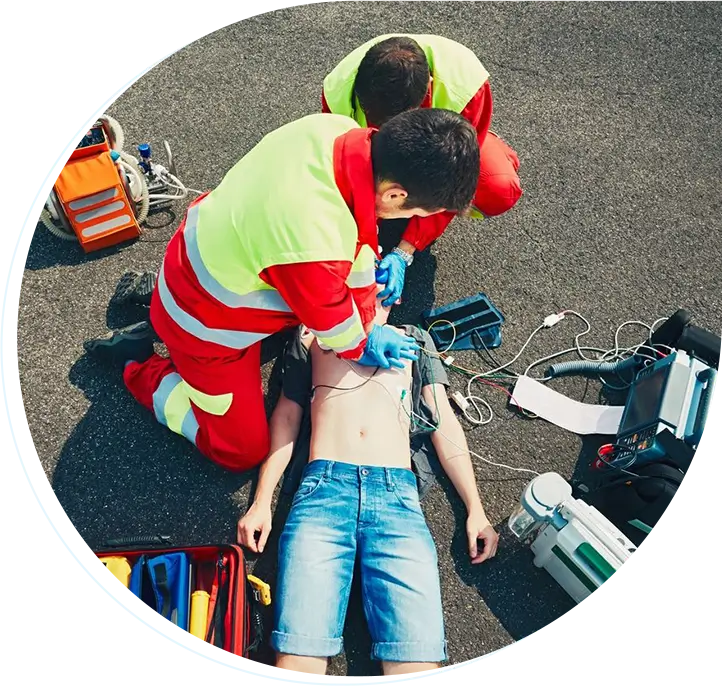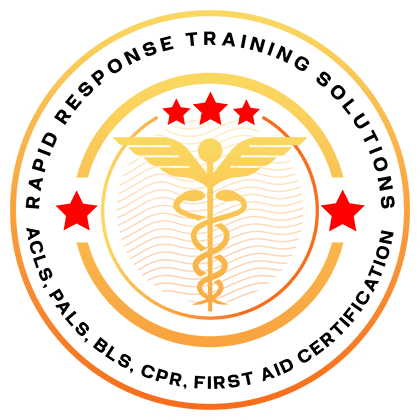Your Onsite
Providing AHA Courses in ACLS, PALS, BLS, Heartsaver, First Aid, ECG Training for Over 3 Decades


Expert Medical Training Courses
When taking a course from Rapid Response Training Solutions, we make sure your staff are familiar with the defibrillator/Monitor you have at your facility, and they know how to use it.
You are learning from experienced providers who are passionate about providing an exceptional, stress-free environment. The students will learn the curriculum for which they seek and retain the knowledge through positive reinforcement to better serve the patient population that they encounter. Let’s face it, stress is not conducive to a learning environment. You have been stressed enough before the class began, so let us put you at ease and tell you that we will get you through this no matter how much test anxiety you have. You will leave the class with a complete understanding of the material and feel better about your successful completion than you ever thought possible, we guarantee it.
The Classes We Offer Certification in are
We provide instruction and certification through AHA in the abovementioned classes, we also help ensure your staff is prepared for emergencies by providing monthly, bi-monthly, and semiannual Megacode practice to ensure your staff is ready should an emergency arise.
Why Choose Us?
Because we are your Onsite Training source, we come to you. We will happily train your staff at your facility with the team members they know, and where they are comfortable. No travel time for employees, and the class is done efficiently which means less overtime to be paid out.
Why train with people you don’t know or work with?
Why use someone else’s equipment?
Train with the team you work with every day.
We make sure your staff is competent in the AHA curriculum and familiar and proficient with the Defibrillator/Monitor/AED you have at your facility.
Teams that train together understand the strengths and weaknesses of each team member. A major benefit of this type of training is team leaders and members are adept at identifying all aspects of the medical emergency, and therefore, better at allocating tasks most appropriate for each of your team members.
Your well-trained team means tasks will be performed much faster when they all train together. Mistakes are far less likely to occur, and the quality of patient outcomes will improve.









